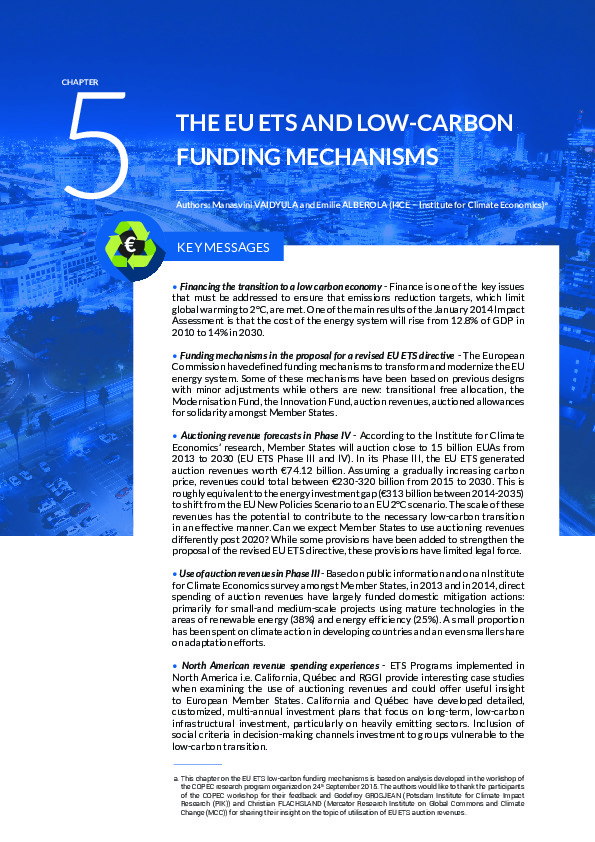COPEC Chapter 5: THE EUETS AND LOW-CARBON FUNDING MECHANISMS
This Publication is an extract from the Coordination of EU Policies on Energy and CO2 (COPEC) report, produced jointly by I4CE – Institute for Climate Economics and Enerdata, and in collaboration with IFPen. The report provides new, factual, independent and quantified analysis on EU ETS operationality by 2030, to examine the necessary conditions to improve its environmental and economic effectiveness.
COPEC Chapter 5 on the EU ETS and low-carbon funding mechanisms;
– Identifies challenges to transitioning to a low-carbon economy on an EU level, the importance of finance to achieve this transition, and some
funding mechanisms that can help facilitate this shift, that are derived from the EU ETS
– Examines the usage of ETS revenues accrued by Member States, particularly which sectors benefit from the revenues allocated and pinpoints some lessons that can be learned from Member States’
decision-making
– Focuses on the experiences of ETS revenue spending models in
North America (California, RGGI and Québec) and leverages some of their best practices to provide recommendations that could improve the potential of Member States’ EU ETS revenues as a financing mechanism to support the low-carbon transition
